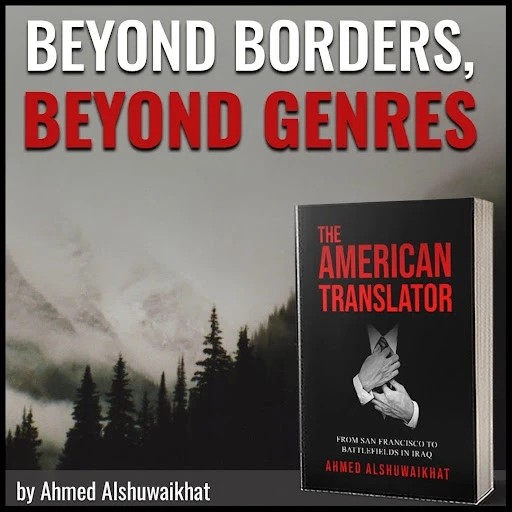In a world torn apart by conflict, where the lines between cultures blur and the quest for understanding becomes paramount, Ahmed Mahdi Alshuwaikhat presents a literary masterpiece that delves into the depths of human experience. "The American Translator" transcends the boundaries of conventional storytelling, weaving a tapestry of intrigue, suspense, and profound reflection on the intricacies of war and the universal desire for peace.
At the heart of this captivating narrative is David Boccaccio, an enigmatic Italian-American whose insatiable curiosity leads him on a journey of self-discovery across continents. From the bustling streets of San Francisco's Little Italy to the war-torn villages of Iraq, Boccaccio's odyssey is marked by danger, mystery, and the relentless pursuit of truth.
Alshuwaikhat's meticulous attention to detail brings each setting to life, immersing readers in vivid cinematic descriptions that evoke a sense of place and time. Whether navigating the palm groves along the Euphrates River or braving the perils of a desert battlefield, the reader is transported into a world where every moment is fraught with tension and possibility.
But "The American Translator" is more than a tale of adventure and intrigue; it is a poignant reflection on the human cost of conflict and the enduring quest for peace. Through Boccaccio's eyes, we witness the horrors of war and its profound impact on individuals, families, and communities. Yet amidst the chaos and despair, there is also resilience, courage, and the glimmer of hope that humanity will prevail.
One of the novel's most compelling aspects is its exploration of cultural identity and the complex dynamics that shape our understanding of the world. As Boccaccio grapples with the challenges of translation and communication across linguistic and cultural barriers, he confronts his own preconceptions and biases, ultimately forging connections that transcend language and nationality.
Indeed, "The American Translator" is a testament to the power of empathy and understanding in bridging the divide between peoples. Through Boccaccio's interactions with a diverse cast of characters, including soldiers, civilians, and artists from around the globe, we are reminded of our shared humanity and the importance of dialogue in resolving conflict and fostering mutual respect.
But perhaps the novel's most profound message lies in its call for peace—a universal aspiration that transcends borders and ideologies. As Boccaccio grapples with the moral complexities of his role as a translator in a war zone, he is forced to confront the harsh realities of violence and injustice. Yet amidst the chaos and despair, he remains steadfast in his belief that reconciliation is possible, that understanding and compassion can triumph over hatred and fear.
Veronica "Waterfall" Adams praises the book, likening it to action/adventure movies filled with mystery, suggesting it should be adapted as such. Her perspective underscores the novel's cinematic quality and its potential for wider audience appeal. Likewise, Damilare Olayiwola's enthusiastic endorsement further highlights the universal appeal of "The American Translator," affirming its status as a literary sensation in the making.
In many ways, "The American Translator" reflects its author's journey—a quest for meaning and connection in a world torn apart by division and strife. Ahmed Mahdi Alshuwaikhat's background in English and multicultural education and his extensive travels and cultural experiences imbue the novel with profound and enlightening insight and understanding.
As readers embark on this literary odyssey, they are invited to confront their own assumptions and prejudices, to challenge their perceptions of war and peace, and to contemplate the universal truths that bind us together as human beings. In the end, "The American Translator" is more than a novel; it is a testament to the enduring power of storytelling to inspire, enlighten, and unite us in our shared humanity.
In conclusion, "The American Translator" by Ahmed Mahdi Alshuwaikhat is a captivating literary work exploring the complexities of war, peace, and everything. Through its compelling narrative, vivid imagery, and profound themes, the novel invites readers on a journey of self-discovery and enlightenment, challenging them to reconsider their views on conflict, culture, and the human condition. It is a timely reminder of the importance of empathy, understanding, and dialogue in building a more peaceful and just world for future generations.


